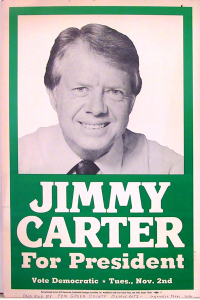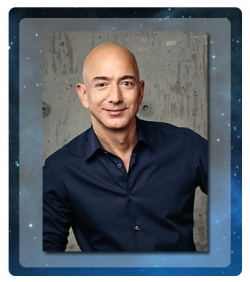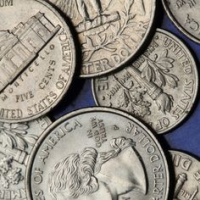
This happened because our government allowed deflation to run riot, which sent the benefits of productivity scurrying to the top of the economic pyramid, leaving those who should have been the beneficiaries with nothing. The nature of our crisis is to broaden the base, recycling the wealth of deflation into inflation, generating economic power that can meet the needs of the world’s people.
It so happens that 1978 was also the year I entered the work force. I was in Houston, then a wide-open town growing like gangbusters, much like Silicon Valley today. Houston was driving the economy but not getting what it needed from policymakers, who were more interested in the fate of manufacturing cities like Detroit than in the resource industries.

Trump, as I have written before, is the opposite of Jimmy Carter in every way. Yet he stands in the same place on the political and economic history calendar.
I predicted early this decade that we’d have two great run-ups for oil prices. The first was already underway in 2011. It ended in 2014 as renewable energy – mainly efficiency – took its toll on demand. The second run-up is now underway, and will fall as renewable energy supply, solar and wind, prove they can meet demand and put a final thumb down on fossil fuel prices.
Meanwhile, we have a spell of inflation, as we had inflation abating then, waiting for the next crisis. Instead of that inflation going into social goods, however, it is going entirely into private pockets. This is political suicide for Republicans, as Carter’s policies were for Democrats. Republicans are now guaranteed a full generation in the political wilderness, which is why they’re acting so desperate.
Current policies are political suicide because they account neither for the needs of the people nor the direction of the economy. The oil days aren’t coming back. This is the technology era. As Trump and his minions work to rein-in technology on behalf of resources, a backlash is developing.

When journalism lacks a business-model based on reader patronage, journalists seek political patronage. This is how it was during the time of the Founders. Journalism today is a political act, not an economic one. That’s why most journals – Fox, Breitbart, Sinclair, etc. – routinely lie. He who has the gold makes the rules, the right-wing has the gold, so they make the rules.
The best political move Bezos can make today, thus, is a business move.
A universal paywall app, one enables pay per view, or pay per minute, access to journalism is the ticket. It is ridiculous that people should be made to buy a $10 per month subscription fee when they’re only interested in looking at one article, or two, at a time. It would not be difficult for the Post to offer a per-article or per-minute price, through an app. It would then be easy for the Post to offer use of that app to other publishers, with Amazon Web Services handling the back-office accounting.
The biggest problem with the Web today is that most of it is off-limits to most people. A rash of paywalls, all demanding monthly or yearly subscriptions, mean that stories aren’t read, newspapers are newsletters, and business models based on political patronage are the only things working in the online world. TV and cable stations still offer free access, for now, subsidizing their web efforts through broadcast profits. But with the cable business model rapidly breaking down, with cord-cutting becoming the norm, how long is that going to last?

Load the app onto your phone or your tablet or your PC, as you do identity apps like Dashlane today. Control access through throwaway passwords delivered from the cloud, and accounting maintained by Amazon’s existing payment infrastructure. Share data with papers who sign up, so they know who’s reading, whether they are hitting their target markets. Use this data to encourage up-sells and allow for push advertisements based on what people are reading. You can even pay people for reading or acting on ads through the system.

This is going to happen. It’s just a question of who and when. When it does, we have the real beginnings of a political revolution, because in America economics always drives the political train.









